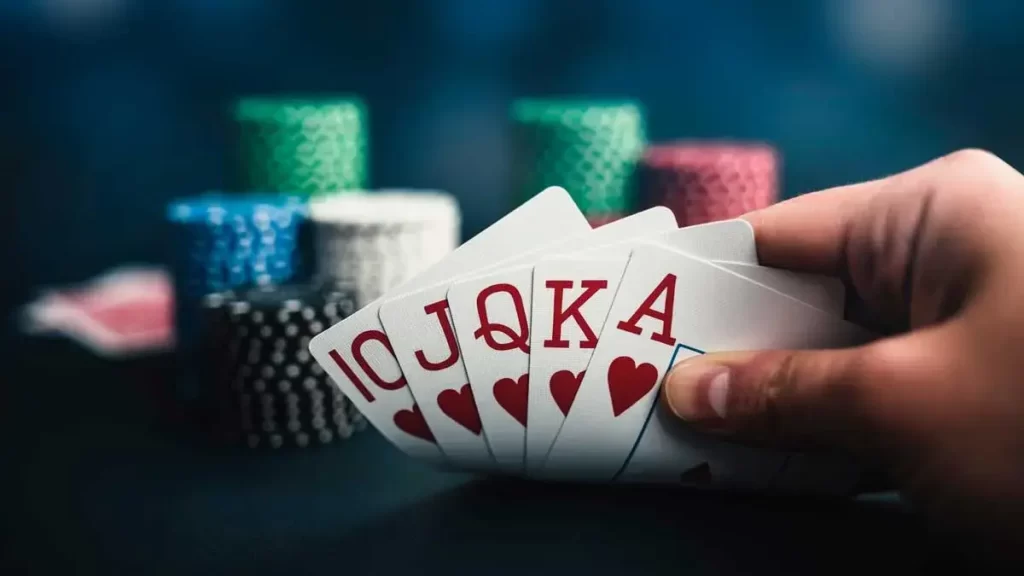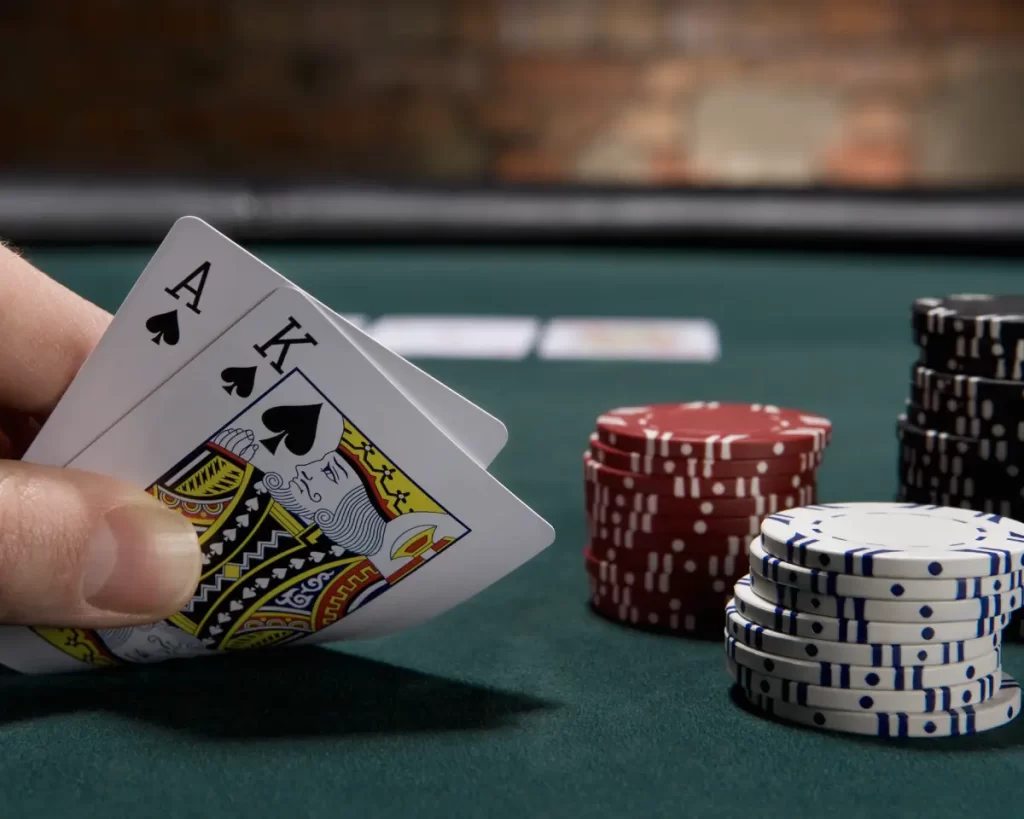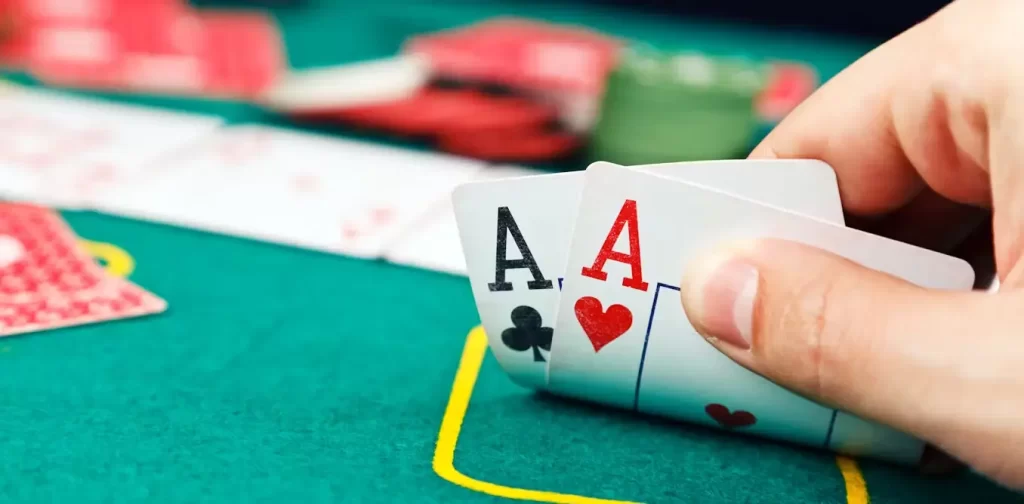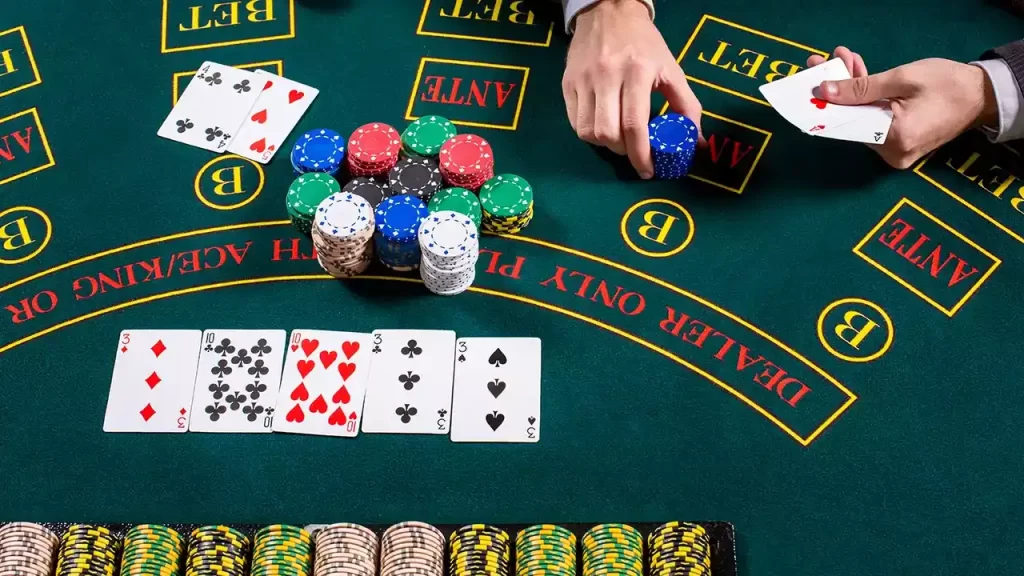Whether you are a beginner or an experienced player, understanding how to play poker will help you feel more confident when participating in intense games. In this article, we will guide you on how to play poker from the most basic steps, and share strategies to help you improve your chances of winning. Let’s explore how to become a wise poker player!
Popular Versions of Poker
Poker is a diverse game with many variations, each version with its own unique characteristics that are suitable for different playing styles. Among them, the three most popular versions are Texas Hold’em, Omaha, and Seven Card Stud, each of which has its own appeal among the online Casino player community worldwide.

Texas Hold’em: Legendary Variation.
Texas Hold’em is the most famous and popular version of Poker today, especially in big tournaments like the World Series of Poker (WSOP).
- Each member at the table will be dealt two hole cards.
- On the table, five community cards appear in turn through the rounds: Flop (3 cards), Turn (1 card), and River (1 card).
- Players use their two private cards combined with the community cards to form the strongest hand.
Omaha: Innovation and Challenge
Omaha is a more complex variation than Texas Hold’em, requiring players to be more careful in formulating strategies when playing at Ph444 bookmaker.
- Each player will be dealt four hole cards.
- There are also five community cards on the table, similar to Texas Hold’em.
- The key difference: players must use exactly two private cards and three community cards to form the strongest hand.
Seven Card Stud: Classic and Tactical
Before Texas Hold’em became popular, Seven Card Stud was the most popular version of Poker, especially in the United States.
Seven Card Stud requires players to memorize cards and predict their opponents’ strategies, requiring a high level of concentration and analysis. Although less popular today, the game is still popular at classic tables or in the traditional Poker community.
Basic Poker Rules
Poker is a card game that requires a combination of strategy, skill, and a little luck. Below is a detailed guide to the basic rules and gameplay of poker, helping beginners easily get acquainted and participate in the game.

Deck and Game Objective
Deck of cards used: Poker is played with a deck of 52 cards, without the use of Jokers. This deck is divided into four suits (Spades, Hearts, Diamonds, Clubs), each suit consisting of 13 cards.
Objective: Players need to create the strongest hand by combining 2 hole cards and 5 community cards. The player with the strongest hand wins all the bets in the pot.
How to deal cards and betting rounds
Dealing cards:
- Each player is dealt 2 private cards, face down, for secret keeping.
- 5 community cards are dealt in the middle of the table in 3 stages:
- Flop: Turn over the first 3 cards.
- Turn: Turn over the fourth card.
- River: Turn over the last card.
Betting rounds:
- Pre-Flop: Begins after receiving 2 hole cards. Players decide what to do: fold, call, or raise.
- Flop: After the first three community cards are turned over, players continue betting.
- Turn: Another round of betting takes place after the fourth card is dealt.
- River: The final community card is turned over, followed by the final round of betting.
- Showdown: After the final betting round, the remaining players compare their cards to determine the winner.
Note: In each betting round, players can choose to Fold, Bet, Raise, All-in or Call depending on their strategy and hand situation.
How to play poker effectively for beginners
When you are just starting out, it is important to master how to play poker to increase your chances of winning. Poker is not only a game of luck, but also requires strategy and observation.

Develop a playing strategy.
To be able to play poker effectively, developing a playing strategy is indispensable. How to play poker depends not only on luck but also on your decision-making ability.
Hand Selection: One of the most important skills in poker is hand selection. Learn to differentiate between strong and weak hands. For beginners, it is important to play only with strong hands or hands that have good potential for development from the community cards. If you do not have a strong hand, do not hesitate to fold to save money.
Focus on the community cards: While playing poker, you not only need to focus on your own cards but also have to keep a close eye on the community cards. The community cards will have a direct impact on your cards and your opponents’ cards. Effective poker play requires you to always keep an eye on the community cards (Flop, Turn, River) and re-evaluate your chances of winning after each betting round.
Use bluffs wisely: Bluffing is a common tactic in poker, but it must be used wisely. New players often make the mistake of bluffing too often. To play poker effectively, you should only bluff in appropriate situations, when you feel your opponent does not have a strong hand and is vulnerable. Remember, bluffs should only be used in small amounts so that your opponent does not see through them.
Understanding Odds
An important element of how to play poker is understanding the odds. Understanding the odds will help you make better decisions when faced with difficult situations in the game.
When participating in betting rounds, you need to know the probability of which cards will help you improve your hand. For example, if you have a pair that can be combined with a community card to form a three of a kind, you will need to calculate the probability of that card appearing. Understanding how to calculate odds will help you make more accurate betting decisions, increasing your chances of winning the game.
How to play Poker effectively by observing your opponents

One of the most important skills in playing poker is the ability to observe your opponents. Reading your opponents’ behavior and betting patterns is one of the factors that determine whether you win or lose in poker.
Reading Betting Patterns and Behavior: Learning to read your opponents’ betting patterns will help you identify weak players, strong players, or bluffing players. If an opponent consistently bets big when they have good hands, you can easily tell when they are bluffing and when they have strong hands. This observation will help you make better decisions in each hand.
Pay attention to betting behavior: In addition to monitoring betting patterns, your opponent’s behavior in specific situations is also very important. Some players will act differently when they have strong or weak cards, from which you can deduce and come up with reasonable strategies. Playing poker effectively requires you to be a strategist, not only knowing how to play your cards but also analyzing how your opponents play.
Conclusion
Playing poker effectively is not just about luck, but also requires strategy and observation skills. By developing a strategy, understanding the odds, using smart bluffs, and observing your opponents, you will improve your chances of winning every hand. Be patient, learn, and apply these strategies every time you play to become a good poker player.
